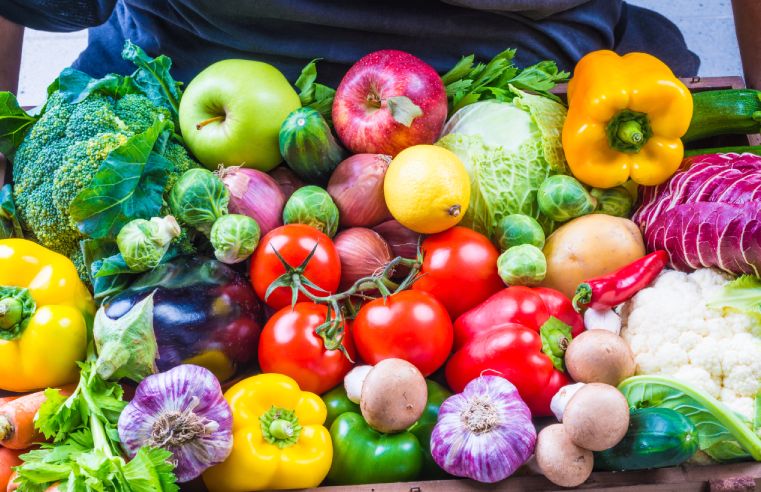Tess Warnes, dietitian at food procurement expert allmanhall, looks at the impact of seasonal eating.
Many of us have heard the term ‘seasonal eating’ but it is hard to fully understand what that means with the vast choice and array of foods so readily available to us, year-round.
As consumers we expect to be able to buy a huge variety of foods that come from all corners of the world, and at all times of the year. A quick inspection of food labels will show the range of countries food come from: tomatoes from Spain, sweet potatoes from South Africa and asparagus from Mexico. But is having this availability such a good thing, both through the impact on the environment, and on the quality of the product being bought.
Environmental impact
In the case of the environmental impact, we can take the humble spring onion as an example. A huge proportion of spring onions consumed across the UK are imported from Thailand meaning it has travelled approximately 5,900 miles to get to our supermarkets. Egyptian spring onions are also shipped into the UK. From a sustainability perspective, this clearly has an impact on the environment, especially if the mode of transport is airfreight. Long-distance travel may mean increased environmental costs for us however it's important to note that the food miles argument in its most simple state is defunct. The transportation of food only accounts for a small percentage of the value chain when it comes to emissions. A shipped spring onion will have a lower carbon footprint than one grown out of season in a hot house in the UK, requiring extensive resources to recreate the growing conditions needed.
Foodsteps, the ground-breaking carbon impact assessment technology business, sets out to help foodservice and catering providers understand the environmental impact of the food they include on their menus. Via its platform, caterers can upload recipes in order to understand their environmental impact via a clear rating system and carbon footprint per ingredient. allmanhall has an exclusive partnership with Foodsteps, and together they aim to make data accessible, allow informed decisions on the environmental impact of menus, and create a more sustainable food supply.
Food quality
When it comes to the quality of the produce, if imported it will mean that by the time we actually eat it, it will be days, if not weeks old.
In general, fruits and vegetables are picked at the peak of their ripeness and also, the peak of their nutritional status. The problem in our spring onion example is that it has had to travel for days to get to the point of being eaten, meaning it has started to age.
Unfortunately, this ageing leads fresh foods to lose their nutritional density. This means that you don’t get the same nutritional benefits that you would have if you had eaten it when it was freshly picked. And it is not just a small change or deterioration. One research associate at the University of Austin reported that fruit and vegetables found in supermarkets are anywhere from 5% to 40% lower in vitamins and minerals.
If you can base menus on food that is both in season and local you are potentially increasing the nutritional density and quality of the meals you serve. Although you might be choosing ingredients from a smaller pool, it is still important to focus on variety, ensuring you are delivering a variety of nutrients which will support overall health, including gut health.
Older people tend to have smaller appetites meaning that it is of utmost importance that everything they do eat is as nutritionally dense as possible. This helps to ensure that your meals will provide their bodies with all they need to function optimally.
Therefore, if you can base your menus on food that is both in season and local you are potentially increasing the nutritional density of their meal, ands its quality.
How do you know when food is in season?
With the majority of fresh produce being available almost all year round it can be hard to decipher what is actually in season and what isn’t. There is a host of information available on web sites such as:
• Seasonal UK grown produce - Vegetarian Society (vegsoc.org)
• What's In Season When? (lovebritishfood.co.uk)
• Seasonal calendar - BBC Good Food
allmanhall offers advice through its seasonality guide, and its clients can download further seasonal advice from the The Pass. allmanhall will also be able to advise on which products are abundantly available through suppliers at any moment in time.
When deciding on menus, there is a strong case for buying seasonal, both from the environmental impact and because of the quality of the product. Use cookbooks based on seasonal eating, or the abundant online resources available to create tasty quality meals. If this is too daunting then using a specialist like allmanhall to help create menus, which take the stress out of having to come up with recipes using ingredients you may be less familiar with cooking.

























